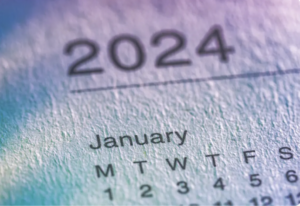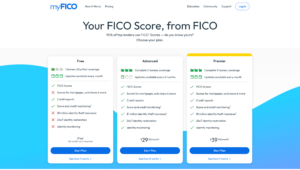Consumers have the right to request the method of verification of a credit dispute when they believe the credit bureaus did not properly investigate.
The method of verification under the Fair Credit Reporting Act (FCRA) refers to the process by which consumers can request and verify the accuracy of the information in their credit reports.
When a consumer disputes an item on their credit report, the FCRA requires the credit reporting agencies (CRAs) to investigate the disputed information and take appropriate action. Unfortunately, the method of handling credit disputes is similar among the three major credit bureaus (Experian, Equifax and Transunion).
An online computer program for the re-investigation process called e-Oscar is the way most credit disputes are processed.
The e-Oscar method of investigation has automated the credit bureaus’ entire system. Every credit dispute received by them: written; online; or telephonically; is reduced to a three-digit code, even if you submit a written dispute with supporting documentation.
That three-digit code is then sent to furnisher of information to verify as accurate or not accurate. That’s it. No real investigation is conducted in most cases.
According to the FCRA, credit bureaus are required to forward dispute information along with any proof submitted by the consumer to the furnisher of information (original creditor).
But due to the automated e-Oscar system, often times the only thing that’s investigated is that three-digit code. That’s why it’s important to use every legal right afforded to consumers. The FCRA says consumers have the right to know the credit bureau’s method of verification for verified disputes.
How the Method of Verification Works
If you get a response to your dispute from the credit bureau saying the disputed item was “verified” you have the right to request the “method of verification” under the FCRA, Section 611 (a)(6) and (7).
The credit bureau must give you the method of verification information within 15 days of your request.
The method of verification is a powerful tool against the credit bureaus.
You may have to threaten to sue or even actually sue them if they refuse to sufficiently comply with your request for the method of verification. But don’t worry, the Fair Credit Reporting Act (FRCA) laws are on your side.
Assuming you’ve already mailed your dispute and it came back verified, follow these steps to request the method of verification.
Step 1: Put your request for method of verification in writing.
It’s very likely the credit bureau did not contact the original creditor at all. The third-party database, e-Oscar, may have been used to verify the disputed item, which is insufficient.
- Request the credit bureaus provide relevant documentation that shows clear evidence they investigated your credit dispute.
- You want sufficient proof FCRA procedures were followed and proper steps taken to verify the dispute as accurate.
It’s questionable how much real human effort is actually applied during the course of their investigations.
Step 2: Sample method of verification letter
Send U.S. Mail Certified, Return Receipt
(Date)
(Credit Bureau Name)
(Credit Bureau Address)
RE: Method of Verification Request To Whom It May Concern:
This letter is in response to your recent claim that [insert name of creditor, collection agency, or court] verified the account they are reporting is accurate.
Please be advised that I am exercising my rights under FCRA 611(a)(6)(B(iii) which provides that a consumer may request “a description of the procedure used to determine the accuracy and completeness of the information shall be provided to the consumer by the agency, including the business name and address of any furnisher of information contacted in connection with such information and the telephone number of such furnisher, if reasonably available.”
In compliance with this method of investigation request, please provide the following:
- The description of the procedure used to determine the accuracy and completeness of the information.
- Name, address, and telephone number of each person contacted regarding this alleged account.
- A copy of any documents provided bearing my signature, showing that I have a legally binding contractual obligation to pay them the exact amount claimed.
Any automated response or e-Oscar verification is unacceptable. I am requesting a re-investigation along with your method of verification. The item in question is inaccurate and represents a very serious reporting error. I expect to receive a response within 15 days of receipt of this letter in compliance with the FCRA. If not, I expect this item will be removed from my credit files immediately. Thank you for your prompt attention to this matter. I look forward to resolving this matter as soon as possible.
Regards,
(Your Full Name – printed or typed)
(Social security number)
(Address)
Step 3: Wait 15 days for response from credit bureaus
FCRA 611(a)(7) provides: “A consumer reporting agency shall provide to a consumer a description referred to in paragraph (6)(B)(iii) by not later than 15 days after receiving a request from the consumer for that description.”
Step 4: What to do if credit bureau does not comply
If they do not respond, they are in violation of the FCRA and you can sue or just threaten to sue and see if you can get the negative listing deleted. But before you pursue legal action make a complaint with the Consumer Financial Protection Bureau requesting the item be deleted based on the credit bureau’s lack of compliance with the method of verification.
You can also make the same type of complaints with your state’s Attorney General’s Office along with the Better Business Bureau. You want to put as much pressure on the credit bureau as possible before pursuing legal action.. If the disputed item remains, it’s time to get tough with the credit bureau.
Send an Intent to Sue Letter, certified letter, return receipt and give them 10 days. After the 10 days file your lawsuit in small claims court or contact a consumer law attorney. NACA has a nationwide database of consumer law attorneys, very familiar with handling FCRA violations.






















